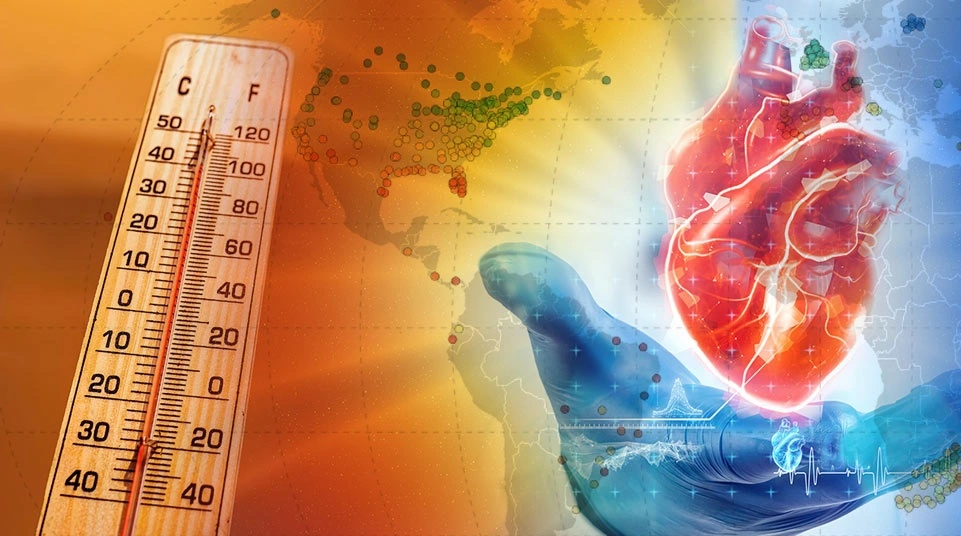Global warming has become at its peak, and human bodies can feel the heat’s impacts differently. One of the harmful impacts can be seen in the heart. As it is the central pump of our cardiovascular system, it plays a major role in sustaining overall health and well-being. Acknowledging how heat can trouble the heart is necessary for keeping healthy during the warm season like nowadays in Delhi. If you’re concerned about heart health during extreme heat, consider consulting the best heart hospital in Delhi.
How does heat affect the heart?
As soon as our body is exposed to heat waves, numerous negative effects are observed in our bodies which may lead to cardiovascular diseases:
1. Excess heart palpitation: One of the considerable results of heat on the heart is a surge in heart rate. The body cools down by doing so. As the body temperature soars, the heart performs harder to provide blood to the skin’s surface where heat can be kept away.
2. Higher blood pressure: Heat can dilate or expand blood vessels to keep away heat through the skin. This expansion of blood vessels can result in a drop in blood pressure for a while. However, for some individuals, it works as opposed to given conditions, especially those with bearing heart conditions; this can also result in an upsurge in blood pressure as the heart faces difficulty maintaining normal circulation.
3. Dehydration: Warm weather can cause dehydration if we don’t drink enough liquid. Dehydration decreases blood volume, which makes the heart work harder to sustain blood flow and circulation in the body.
4. Risk of heat exhaustion and heat stroke: Long-term exposure to high temperatures without adequate hydration and cooling can lead to heat-related ailments such as heat inflammation and heat stroke. These situations aid stress on the heart and can be fatal if not cured quickly.
Who is most at risk?
Major segments of people are more prone to the causes of heat on the heart:
- Elderly individuals: Elderly citizens may suffer from specific health conditions that make them vulnerable to controlling body temperature efficiently.
- People with heart conditions: Heat can greatly impact people with heart disease, high blood pressure, or other cardiovascular conditions. If you experience any heart-related symptoms during hot weather, it’s wise to consult a heart doctor in Delhi.
- Children: Regulating body temperature for Young children can be problematic compared to adults.
- Outdoor workers: Those who work outside in hot environments are more prone to heat-related diseases.
- Athletes: Severe physical exercises in hot weather can pressure the heart, especially if inadequate fluids are taken to replace those lost through sweating.
Tips for protecting your heart in high temperature and heatwave
To reduce the impact of heat on your heart, imply the following tips:
1. Stay hydrated: An ample amount of water must be drunk throughout the day, especially when time is spent outdoors
2. Avoid peak heat: When heat strikes, try to be inside or in a cooler area, specifically from morning to mid-afternoon.
3. Wear appropriate clothing: Light-coloured, loose-fitting, breathable cotton can prevent excessive heat and sweat as it evaporates.
4. Use fans or air conditioning: Stay in air-conditioned environments or use fans to cool down.
5. Take breaks: If you are in the sun, take frequent breaks in the shade to prevent intense motions.
6. Know the signs of heat-related illnesses: If you experience excessive sweating, nausea, dizziness, rapid heartbeat, or confusion, seek medical attention immediately. These symptoms may indicate heat stroke or exhaustion. A cardiologist can provide immediate assistance.
7. Check on vulnerable persons: Take care of elderly family members, neighbours, or anyone who succumbs to heat-related health problems.
Crucial signs of heat effects cannot be neglected for maintaining good health, specifically when hot weather approaches. By following some major measures to escape from the heat and being aware of the crucial symptoms of heart-linked illness, others and you can be protected from the deterrent effects of heat on the heart. Most importantly, staying hydrated and keeping cool and calm makes you think better in the worst conditions. Medical help must be taken urgently and will be a better option to be saved. You are not only ensuring yourself by taking care of your heart but also taking care of your overall well-being.








